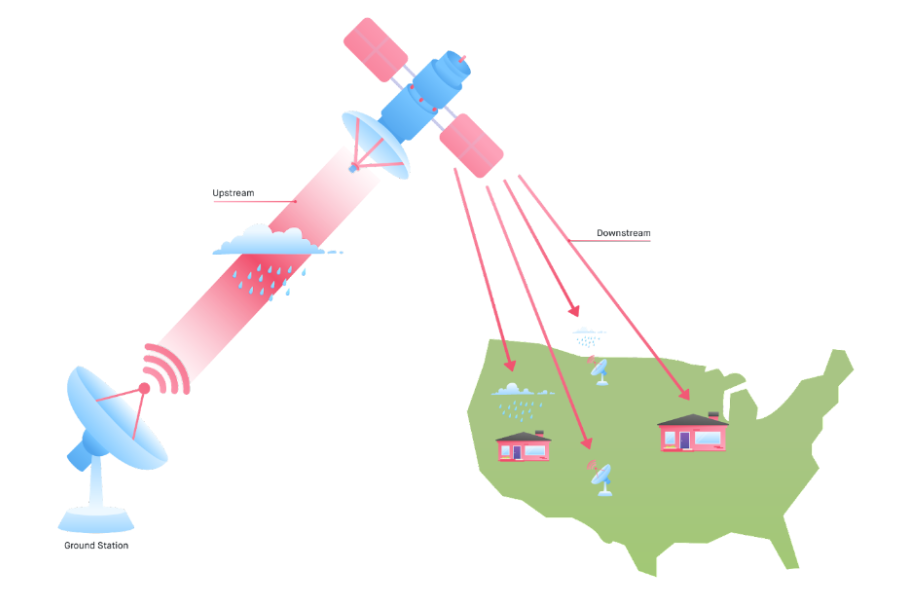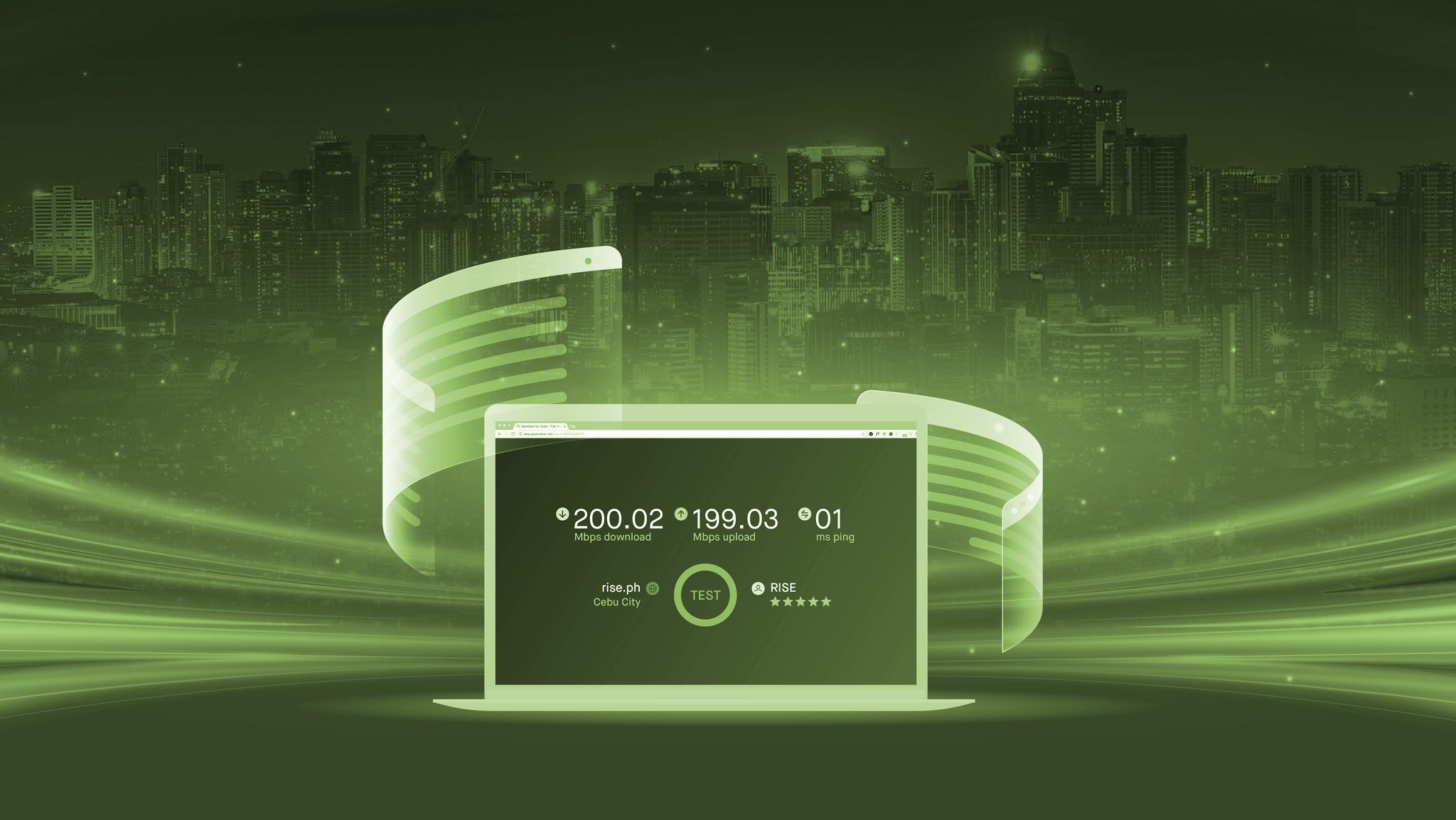The weather in the Philippines isn’t always as stable as we would like it to be, and when bad weather hits, it can have a big impact on your internet connection.
Some of us are already used to interruptions during big weather events, like floods and storms. The internet runs on electricity after all, and a power outage from a lightning strike or a downed power line will turn off the internet just the same as it turns off your lights.
If the weather is bad enough, every internet connection will be affected. However not all connections are created equal, and some will be more vulnerable to bad weather than others. Anything from heat, rain and wind can have an impact!
Which internet connections are most affected by bad weather?
In general, wireless connections are more susceptible to the effects of bad weather than wired connections. Satellite connections can be even more vulnerable, as the signal has to travel through the atmosphere and requires large outdoor equipment.

Heavy Rain
Rainfall can impact wireless signals outside the building because water droplets partially absorb the signal, resulting in lower coverage.
Rain can also cause physical damage to wires, especially in older telecommunication networks.
Because much of the internet’s cabling is underground, moisture can seep into the cables or their connectors if there is flooding. Lowering bandwidth or generating an electrical short-circuit can greatly interfere with transmissions.
Humidity
Weather impacts could be felt even after the rain stops. Because moisture in the air can absorb and obstruct a radio signal, high humidity can continue to impact the quality of wireless signals and may cause slower connection speeds.
Wind
Wind can cause satellite or radio antennas to go out of alignment, and can impact aerial cables.
Temperature
Temperature has little impact on your internet connection. Although copper and fiber optic cables are resistant to extreme cold and heat, the ground in which they are buried is not. Extremely cold temperatures can cause the ground to heave, tear, or rip cables, significantly slowing down your Internet connection.
High temperatures or excessive heat can disrupt internet connectivity and lead to overheating of equipment (router, modem, etc.), resulting in a slower than usual Wi-Fi system.
Extreme Weather Conditions
Power lines, phone lines, and servers can all be knocked out by severe weather such as tropical cyclones.
In Dec 2021, Typhoon Odette brought strong winds with speeds of up to 300 kilometers per hour to Cebu and caused many fiber cuts and network service disruptions with the potential to be down for weeks to months.
Fortunately, in many areas, RISE was the first internet service provider to come back online during this calamity and provide internet access for post-disaster communications in affected areas.
How to fix weather related issues with your internet connection
Weather-related disruptions are beyond your control and often include network infrastructure damage that affects you and your neighbors.
But troubleshooting doesn’t have to be a headache – especially with these simple troubleshooting tips.
Check For Power Outages
Always determine if the internet interruption is local to your building or widespread within your neighborhood by either checking power outage reports on your service provider’s website or directly calling the provider.
To reduce the risk of being impacted by a total internet disruption, consider switching your service to a provider such as RISE that utilizes a network redundancy mechanism to ensure the highest possible uptime for network connections during storms and other extreme weather events.
Disconnect Unused Devices
As a general rule, it is advisable to disconnect unused or unnecessary devices to improve overall internet speed and efficiency. This practice is integral during periods of stormy weather, as network connections can become overtaxed, slow down, or disconnect altogether.
Restart Your Device
Many problems can be solved by simply restarting your device and unplugging your modem and router for a few minutes. However, if you’re using your connection during peak hours, your service interruption may be due to a high traffic volume of users rather than the weather.
Regardless, if restarting your devices is unsuccessful, contact your local service provider for additional guidance. Service providers such as RISE are committed to solving service problems in a timely manner and provide 24/7 support within 15-minutes of contact.
Verify With Your ISP
The state of the ISP-provided equipment and the wires connecting them determines your internet access. If you find that your network equipment has deteriorated due to weather, check to see if the damage has already impacted the quality of your connection and see if you can resolve the issue yourself.
If the problem is beyond your troubleshooting ability, contact your ISP immediately. Service providers like RISE use high-quality and well-maintained cables to reduce service disruptions and cut down on repair times.
Upgrade Your Gear
Modern equipment can make all the difference in internet reliability and performance. Because older wireless routers use a Wireless-G interface to deliver signals, users are much more likely to experience service disruptions due to weather.
However, upgrading to a newer high-tech interface that utilizes Wireless-AC or Wifi 6 technology will allow you to experience faster speeds, improved signal quality, and a more consistent connection. Service providers like RISE offer top-quality fiber-based internet ranging from 30 Mbps to 10,000 Mbps (and higher) delivered on a fast and reliable network.
Wait for the Weather to Improve
If troubleshooting efforts fail, the only option left is to be patient and wait for the storm to pass. RISE recommends disconnecting from devices during a thunderstorm to reduce the risk of equipment damage and personal injury. If this is not possible, a surge protection device may help
Other important safety reminders include:
● Never touch a fallen cable
● Report downed lines to service professionals
● Refrain from using devices during severe weather conditions
The best protection from bad weather is a reliable internet connection
When it comes to internet service, not all providers are created equal. The quality of equipment and service dictate the performance of your internet connection.
That’s why it’s important to select a high-quality service provider like RISE that is committed to using high-tech equipment and providing top-notch support within 15-minutes or less.
Click here to find out more about our service options and get ready to enjoy a reliable internet connection no matter the weather.



